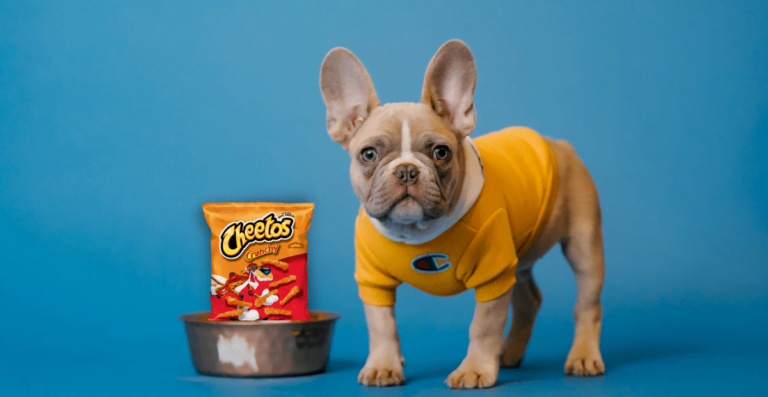How to Keep Your Dog Mentally Healthy and Happy
My dog, Max, was staring out the window without excitement. His usual spark was gone, and he didn’t want to play. I realized dogs need mental stimulation, just like us.
This made me start looking into how to keep dogs mentally fit and happy. There are many ways to keep your dog’s mind sharp and spirits high.
Let’s explore how to make your dog’s daily life an adventure for their brain and heart.

Key Takeaways
- Mental stimulation is vital for your dog’s overall health and happiness
- Engage your dog in daily cognitive challenges to keep their mind sharp
- Incorporate a variety of enrichment activities into your dog’s routine
- Regular mental exercise can prevent boredom and destructive behaviors
- Balancing physical and mental stimulation leads to a well-rounded, happy dog
Understanding the Importance of Mental Health in Dogs
Canine mental health is key to your dog’s happiness and health. Dogs need mental stimulation, just like people do. Let’s look at how mental and physical health are linked, signs of poor mental health, and how to keep your dog’s mind sharp.
The Connection Between Mental and Physical Health
A dog’s mental health affects its physical health. Dogs with good mental health are more active and eat better. They also show fewer signs of stress-related illnesses.
Regular exercise and mental activities help keep your dog fit and sharp. They stop boredom and boost both physical and mental health.

Signs of Poor Mental Health in Dogs
It’s important to know the signs of poor mental health in your dog. Look out for these signs:
- Excessive sleeping or lethargy
- Loss of appetite
- Destructive behavior
- Increased anxiety or aggression
- Excessive licking or self-grooming
Benefits of Maintaining Good Mental Health
Looking after your dog’s mental health has many benefits. By stopping dog boredom, you get:
| Benefit | Description |
|---|---|
| Improved Behavior | Mentally stimulated dogs are less likely to engage in destructive behaviors |
| Stronger Bond | Engaging activities foster a deeper connection between you and your pet |
| Enhanced Learning | Mental exercises improve your dog’s ability to learn new commands and tricks |
| Reduced Anxiety | Regular mental stimulation helps alleviate stress and anxiety in dogs |
Understanding and meeting your dog’s mental health needs makes for a happier, healthier pet.
Daily Exercise: A Key to Mental Well-being
Regular exercise is key for your dog’s mind. It stops boredom, lowers anxiety, and boosts well-being. A dog that gets enough exercise is calmer and less likely to act out.

Walking is a top way to exercise your dog. It gives them new sights, sounds, and smells. For dogs with lots of energy, add runs or jogs to your routine. These activities help burn energy and make your bond stronger.
Playing with your dog is also vital. Games like fetch, tug-of-war, and frisbee are fun and helpful. They make your dog think and move better, sharpening their skills.
| Activity | Physical Benefits | Mental Benefits |
|---|---|---|
| Walks | Cardiovascular health, weight management | Environmental stimulation, stress reduction |
| Runs/Jogs | Stamina building, muscle strengthening | Endorphin release, improved focus |
| Fetch | Agility, coordination | Problem-solving, impulse control |
| Tug-of-war | Strength building, jaw exercise | Bonding, frustration tolerance |
Every dog is different. Adjust your exercise plan for your pet’s age, breed, and fitness level. Daily physical activity is a big step towards your dog’s mental and physical health. It makes them happier and more balanced.
Enrichment Activities for Canine Cognitive Stimulation
Keeping your dog’s mind sharp is key for their happiness. Giving them fun activities keeps them from getting bored and helps their mental health. Let’s look at some great ways to make your dog think harder.
Interactive Puzzle Toys
Dog puzzle feeders are great for making your pet think. They need to solve puzzles to get treats or food. There are different levels, so you can pick the right one for your dog.

Food-Dispensing Toys
Food-dispensing toys make eating fun. They make your dog work for their food, like they do in the wild. This is good for dogs that eat too fast and keeps them busy during meals.
Scent Work and Nose Games
Dog nose work games use your pet’s amazing smell. Hide treats around your house or yard for them to find. It’s a fun way to keep their mind sharp and follow their natural instincts.
| Activity | Benefits | Difficulty Level |
|---|---|---|
| Puzzle Feeders | Problem-solving skills, patience | Medium to High |
| Food-Dispensing Toys | Slows eating, reduces boredom | Low to Medium |
| Nose Work Games | Mental stimulation, confidence building | Varies |
Adding these fun activities to your dog’s day will keep them happy and sharp. Make sure to change toys and games often to keep things interesting for your furry friend.
The Power of Training: Keeping Your Dog’s Mind Sharp
Training your dog is more than just teaching tricks. It’s a powerful tool for mental stimulation and overall well-being. By using effective dog training techniques, you can keep your furry friend’s mind sharp and engaged.
Positive reinforcement for dogs is a key aspect of successful training. This method rewards good behavior, encouraging your pet to repeat it. Treats, praise, and toys are excellent motivators. When your dog follows a command, immediately reward them to reinforce the connection between action and reward.
Dog training games are fun ways to exercise your pet’s mind. Hide-and-seek with treats or toys challenges their problem-solving skills. Teaching new tricks like “spin” or “high five” keeps their brain active and strengthens your bond.
“Training is a great way to provide mental stimulation for dogs. It helps prevent boredom and promotes good behavior.”
Incorporate training into daily routines for maximum benefit. Short, frequent sessions are more effective than long, infrequent ones. Aim for 5-10 minutes of training two to three times a day.
| Training Activity | Mental Benefit | Time Commitment |
|---|---|---|
| Basic Obedience | Improves focus and self-control | 10 minutes daily |
| Trick Training | Enhances problem-solving skills | 5-10 minutes, 2-3 times weekly |
| Agility Training | Boosts confidence and spatial awareness | 15-20 minutes, once weekly |
| Scent Work | Stimulates natural instincts | 10-15 minutes, 2-3 times weekly |
Remember, consistency is key in dog training. Set clear rules and stick to them. This helps your dog understand expectations and reduces confusion, leading to a happier, mentally healthier pet.
Socialization: Building Confidence and Reducing Anxiety
Dog socialization is key for your pet’s behavior and happiness. It helps them become confident and well-adjusted. By giving your pup different experiences, you’re helping them grow into happy adults.
Importance of Early Socialization
The first few months are very important for your puppy. You should expose them to many people, animals, and places. This helps stop fear and anxiety later on.
Ongoing Socialization Opportunities
Socializing your dog doesn’t stop after they’re a puppy. Keep giving them positive experiences as they grow. Doggy play dates are great for keeping their social skills sharp and helping them have fun.
Managing Social Interactions for Shy Dogs
If your dog is shy or anxious, socialize them slowly. Start in calm places and go slow. Here are some tips for shy dogs:
- Use positive reinforcement
- Keep initial interactions brief
- Allow your dog to retreat if uncomfortable
- Seek professional help if needed
| Socialization Activity | Benefits | Frequency |
|---|---|---|
| Doggy play dates | Improves social skills, burns energy | Weekly |
| Obedience classes | Builds confidence, enhances training | Bi-weekly |
| Park visits | Exposes to various stimuli | 2-3 times per week |
Regular socialization keeps your dog mentally healthy and happy. By following these tips, you’re helping your furry friend have a life full of positive interactions and less anxiety.
How to Keep Your Dog Mentally Healthy and Happy
Keeping your dog’s mind sharp is key to their happiness. Activities that challenge their minds are important. By adding fun things to their day, you help them stay happy and smart.
Interactive play is a great way to keep your dog’s mind busy. Use puzzle toys and games that make them work to get treats. You can also hide treats around the house or yard to make them search and find.
Exercise is also good for your dog’s mind. Walking, running, or playing in the park does more than keep them fit. It also makes their mind work by introducing new things to see, hear, and smell.
| Activity | Mental Benefits | Frequency |
|---|---|---|
| Puzzle toys | Problem-solving skills | Daily |
| Scent work | Sensory stimulation | 2-3 times per week |
| Training sessions | Cognitive function | 3-4 times per week |
| Social interactions | Emotional well-being | Weekly |
Training your dog is a great way to keep their mind active. It also makes your bond stronger. Change their toys often to keep things interesting. A dog that is mentally active is less likely to have bad behavior.
“A tired dog is a good dog, but a mentally stimulated dog is a happy dog.”
Using these tips will help your dog stay mentally healthy and happy for a long time.
Creating a Stimulating Home Environment
Your dog’s home is key to their happiness. Adding fun activities can stop boredom and keep them joyful. Start by changing your dog’s toys often to keep them excited.
Make safe spots in your home for your dog to explore. These could be areas with different textures or spots with hidden treats. These simple things can keep your dog busy and happy for hours.
Add new smells and sounds to make your dog’s space more interesting. Think about using:
- Scent diffusers with dog-safe essential oils
- Calming music designed for dogs
- Interactive toys that make different sounds
These things help stop boredom and make your dog’s home fun. A lively home is great for your dog’s mind and happiness.
“A mentally stimulated dog is a happy dog. Creating an enriching home environment is one of the best gifts you can give your furry friend.”
The Role of Nutrition in Canine Mental Health
Nutrition is key for your dog’s health, including their mind. A good diet helps their brain work well and affects their behavior.
Brain-boosting Nutrients
Some nutrients are great for your dog’s mind. Omega-3 fatty acids in fish oil help the brain and fight inflammation. Vitamins C and E protect brain cells. B-vitamins make neurotransmitters, which help with mood.
| Nutrient | Source | Benefit |
|---|---|---|
| Omega-3 | Fish oil, salmon | Brain function support |
| Antioxidants | Blueberries, spinach | Cell protection |
| B-vitamins | Lean meats, eggs | Neurotransmitter production |
Impact of Diet on Behavior
A good diet can make your dog happier and behave better. High-quality proteins keep their energy steady. Complex carbs help them focus longer.
Stay away from fake additives and too much sugar to cut down on hyperactivity and anxiety.
Treats as Mental Stimulation Tools
Treats can really help your dog think and be happy. Use low-calorie treats or puzzle toys during training. This mixes nutrition with brain challenges, helping your dog’s mind and body.
Good nutrition boosts your dog’s mental health and sets the stage for fun activities. A healthy diet is crucial for their brain and happiness.
Addressing Boredom: Preventing Destructive Behaviors
Dogs get bored and may chew furniture, bark a lot, or dig up the yard. These are signs they need more fun. Giving them fun things to do can stop these problems and make them happy.
Interactive play is a great way to keep dogs busy. Change their toys every week to keep things interesting. Puzzle feeders and treat-dispensing balls are fun and make them think.
Hiding treats around the house or yard is another fun activity. It uses their sense of smell and keeps their mind sharp.
- Set up an obstacle course using household items
- Teach new tricks or practice old ones
- Play hide-and-seek with your dog
- Introduce a doggy playdate for socialization
A tired dog is a happy dog. Mix fun activities with brain games for a happy dog. Adding these activities to your daily routine makes you and your dog happier.
Conclusion
Keeping your dog’s mind happy is key for their well-being. Focus on their mental health for a happy life. Regular exercise, fun activities, and training help keep their brain sharp.
Socializing your dog is also important for their mind. A fun home and brain food help too. These steps stop boredom and bad habits.
This guide gives you tips to keep your dog’s mind sharp and happy. With effort in making fun activities for your dog, you’ll grow closer. This leads to a happy and balanced life for both of you.
FAQ
Why is mental stimulation important for dogs?
Mental stimulation is key for dogs. It stops boredom, bad behaviors, and keeps their minds sharp. It’s as important as exercise for their happiness and health.
What are some signs of poor mental health in dogs?
Dogs with poor mental health might bark too much, chew things they shouldn’t, pace, or seem restless. They could also show anxiety, aggression, or other odd behaviors.
How can interactive puzzle toys benefit my dog?
Interactive puzzle toys are great for your dog’s mind. They make your dog think and use their natural hunting skills. Plus, they’re fun and rewarding.
What is scent work, and how can it mentally stimulate my dog?
Scent work, or nose work, teaches your dog to find smells. It’s a fun activity that uses their amazing sense of smell. It’s good for their mind and taps into their natural abilities.
Why is positive reinforcement training important for a dog’s mental health?
Positive reinforcement training teaches your dog new things. It also keeps their mind busy and boosts their confidence. It makes learning fun and strengthens your bond.
How can I create a stimulating home environment for my dog?
Change toys often, give them places to explore safely, and add sensory fun with different textures and sounds. Make sure they have toys and puzzles to keep them busy.
Subscribe to our weekly newsletter below and never miss the latest article.









